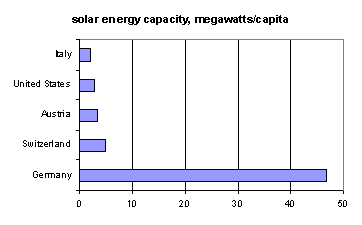The Bertelsmann Foundation–the largest foundation in Europe, I believe–will give its Reinhard Mohn Prize in 2011 to the best project anywhere in the world that “vitalizes democracy through participation.” I am serving on an advisory board for the prize, but a major aspect of the competition this year is open and public. You can go to this website and nominate a project or read and vote on the nominees (or both).
I personally nominated the Unified New Orleans Plan, which was written after Hurricane Katrina by thousands of citizens whom AmericaSpeaks convened for town meetings; Community Conversations in Bridgeport, CT; and deliberative governance in Hampton, Va. These are strongly institutionalized, politically significant examples of public deliberation in the US. They have recruited diverse and representative citizens in large numbers, addressed real problems, and strengthened their communities’ civic cultures.
There are 78 other nominees right now. They include clever ideas, like an online space for citizens of different EU countries to agree to vote together. Promising work comes from unexpected places, like a deliberative polling exercise at the municipal level in China. There are many e-democracy platforms, most of which seem to be suites of online tools for following the government and discussing issues. The Danish Board of Technology, which has an impressive track record of public engagement over many years, convened people in 38 nations to discuss global warming together–an impressive experiment that yielded news reports in many of the countries.
Participatory Budgeting (which gives citizens the right to allocate public funds in deliberative meetings) has spread from its homeland of Brazil to places like Tower Hamlets, London and the Indian state of Kerala. Some important legislative reforms have been nominated and should be celebrated, although I am not sure they meet the criteria of the prize. The Central Information Commission in India is an example.
I am not sure that my own nominees are the best, but I am most enthusiastic about all the examples that are multidimensional, lasting efforts, driven by several institutions instead of only the government, and involving work, cultural production, and education as well as dialogue and advice. Some examples other than my own nominees would include Co-Governance in Belo Horizonte, Brazil, perhaps the Abuja Town Hall Meetings in Nigeria (if they are genuine democratic spaces), and Toronto Community Housing’s Tenant Participation System.
Vote for your favorites!

 .
.